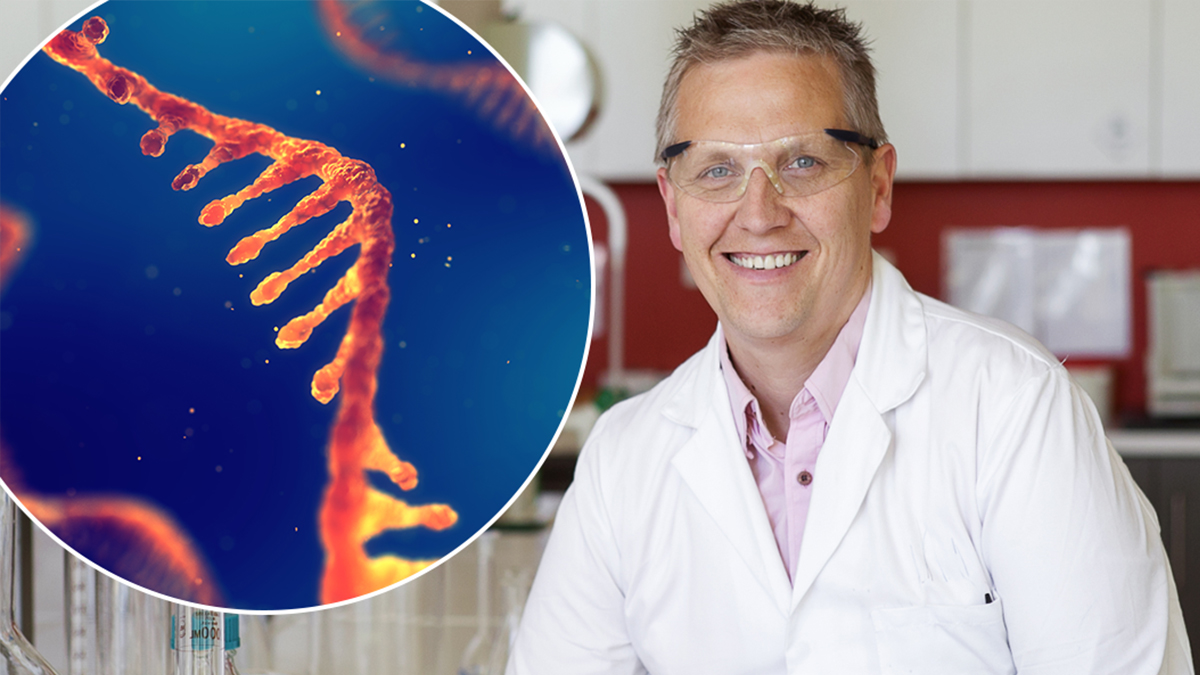
The UNSW RNA Institute will position Australia as a leader in the global research effort to combat emerging vaccine-resistant viruses, such as COVID-19 variants.
UNSW Sydney will lead a new institute which will aim to establish an RNA-based manufacturing hub in Sydney following the NSW Government’s call to drive RNA production in the State.
The high-speed development of COVID-19 vaccines has thrown mRNA technology into the spotlight, highlighting the rapid advances in RNA therapies which have wider potential to treat other diseases and illnesses. Australia currently has no long-form RNA manufacturing capacity.
The UNSW RNA Institute will be a science, therapeutics and translational facility driving cross-disciplinary approaches to global challenges in RNA chemistry, biology and medicine. It will be established with a $25 million investment from UNSW as part of a collaborative, RNA Bioscience alliance between NSW universities.
Professor Ian Jacobs, President and Vice-Chancellor at UNSW, said the institute heralds a new era in onshore development of novel RNA technologies and therapies, and will capitalise on UNSW’s existing expertise.
“The potential of RNA technologies and treatments is enormous, not just to address current and future pandemics, but to treat cancer, genetic and autoimmune diseases.
“UNSW is home to some of the best scientific minds in the world in this field and we are proud to collaborate with the NSW Government, industry and academic partners to drive the development of the RNA ecosystem in NSW,” Prof. Jacobs said.
Professor Pall Thordarson from UNSW Science will lead the UNSW RNA Institute. He is an expert in nanomedicine and synthetic chemistry with a substantial history of working across research and industry.
“An mRNA manufacturing capability would position Australia as a leader in the global research effort to combat emerging vaccine-resistant viruses, such as new COVID-19 variants,” Prof. Thordarson said.
“More importantly, this is not just about mRNA vaccines. They are only the tip of the iceberg in terms of a whole range of RNA therapeutics that are revolutionising medicine – a field that UNSW has great strengths in and includes novel cancer treatments and RNA-based treatments against the virus that causes COVID-19.”
NSW Minister for Health and Medical Research Brad Hazzard said RNA technologies could potentially play an important role not only in combatting pandemics, but also in therapies and diagnostics.
“NSW is already home to pioneering research and national leadership across the fields of gene therapy, gene-modified cell therapy and RNA therapy. This collaboration of some of our brightest scientific minds will turbocharge research and development in NSW,” Mr Hazzard said.
The NSW Vice Chancellors’ Committee (NSWVCC) welcomed the UNSW announcement. Professor Barney Glover AO, Convener of the NSWVCC said: “UNSW Sydney’s new institute illustrates the sector’s capacity to contribute to the State’s plans. The State’s universities are committed to the economic and social productivity of NSW and through their newly established NSW RNA Bioscience Alliance, we look forward to working collaboratively with government and key industry partners.”
In partnership with NSW Health, UNSW will also lead the NSW RNA Production and Research Network. This Network brings together four universities – The University of Sydney, University of Technology Sydney, Macquarie University and the Australian National University – plus several medical institutes and hospital-based facilities with the UNSW RNA Institute, to enable an RNA community of practice in NSW/ACT.
It will undertake and coordinate research to assist in the national COVID-19 response by developing therapeutic solutions. This will be underpinned by a core RNA Accelerator Manufacturing Facility for mRNA, synthetic RNA, and nanoparticle production, which will support researchers from right across NSW to fast-track research and development (R&D) towards clinical trials and major new products.
The collaboration and partnership of industry, government and universities across NSW will foster an RNA ecosystem that extends from research through to future RNA-based manufacturing, and so grow jobs, skills and innovation in NSW.
UNSW Deputy Vice-Chancellor Research and Enterprise Professor Nicholas Fisk said RNA is a game changer in 21st century medicine.
“Australia is right up there globally, with world-leading experts in RNA science, biomaterials and biotechnology within our universities and research institutes,” he said.
“The NSW Government’s investment in the UNSW RNA Institute– together with the Network and the NSW RNA Bioscience Alliance – will accelerate the development and delivery of RNA technologies in NSW and hypercharge human health.”
Professor Emma Johnston, Dean of Science at UNSW said the Institute will address some of humanity’s most pressing medical challenges.
“By supporting the RNA research runway, from complex chemistry to prototype pharmaceuticals, the Institute will ensure we are ahead of the game as we emerge from the COVID-19 pandemic. It will help continue Australian-led innovations of RNA science and position us a world leader in RNA science and technology,” she said.
- Log in to post comments
